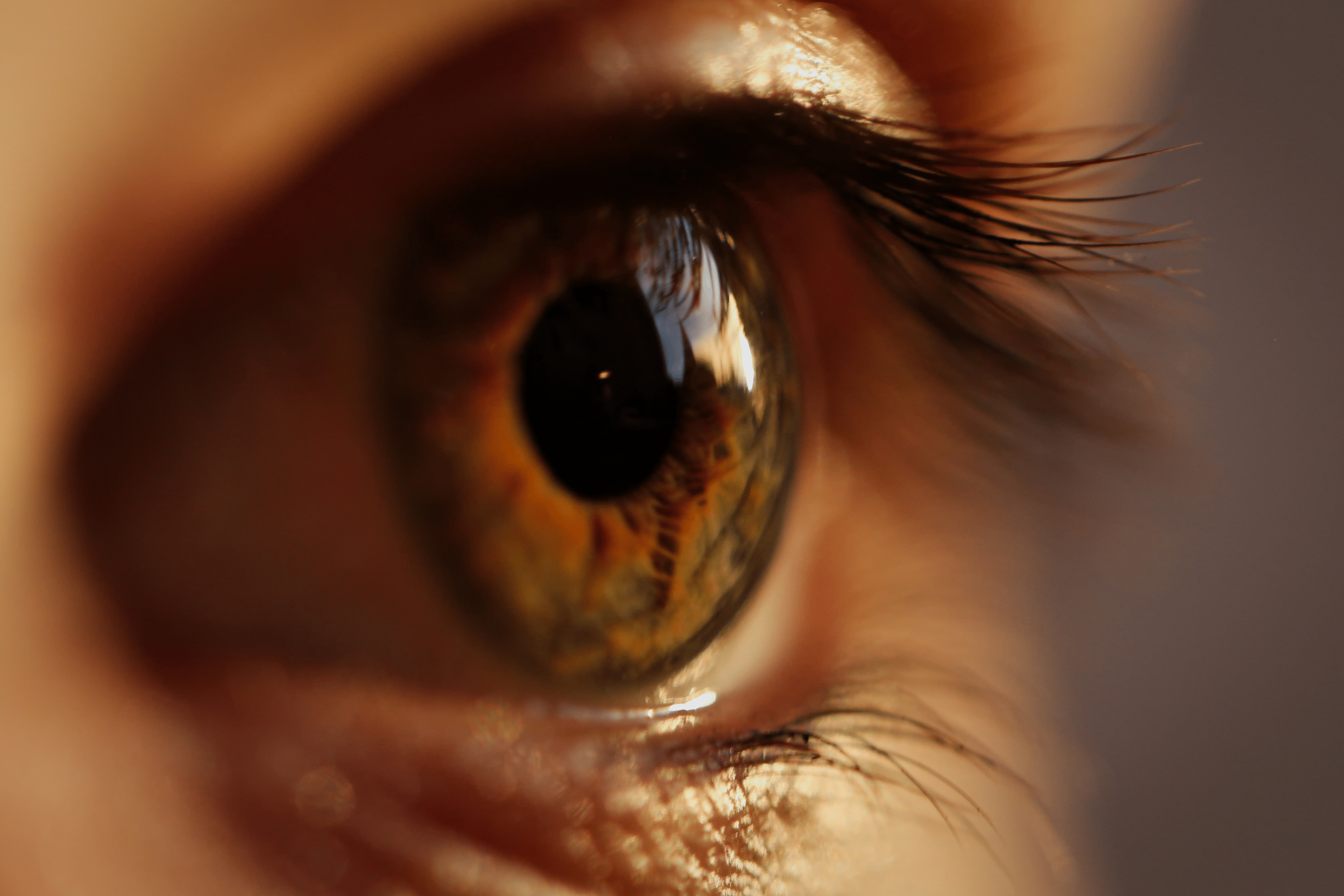As an educator and researcher in the field of optometry and neuroscience, I’ve always been fascinated by the intricate connections within our bodies. Recently, a groundbreaking area of study has captured my attention: the gut-eye axis. This emerging field of research is shedding light on the surprising relationship between our digestive system and our vision.
The gut-eye axis refers to the bidirectional communication between the gastrointestinal tract and the eyes. It’s a concept that’s revolutionizing our understanding of ocular health and disease. In a previous article, I covered some of the basics of this unique link between the gut and the eye. As we delve deeper into this connection, we’re discovering that the health of our gut can significantly impact the health of our eyes, and vice versa.
This newfound knowledge is opening up exciting possibilities for prevention, diagnosis, and treatment of eye diseases. By understanding the gut-eye axis, we may be able to develop novel approaches to maintaining eye health that go beyond traditional ophthalmological interventions. It’s a frontier that promises to change the way we think about eye care and overall health.
The Gut Microbiome: Your Body’s Hidden Ecosystem
Before we can fully appreciate the gut-eye axis, it’s crucial to understand the gut microbiome. This complex ecosystem of microorganisms residing in our digestive tract plays a vital role in our overall health.
You can read more about the fascinating gut microbiome in these previously posted articles: https://guthealth.org/microbiome-gut-health/, https://guthealth.org/unhealthy-gut-bacteria/, https://guthealth.org/resetting-your-gut-microbiome/.
How Your Gut Health Impacts Your Eyes
The link between gut health and eye health might seem unlikely at first glance, but the evidence is mounting [1-7]. One of the primary ways the gut influences eye health is through inflammation [1]. A healthy gut microbiome helps maintain a balanced immune response, preventing excessive inflammation throughout the body, including in the eyes. When the gut microbiome is disrupted, it can lead to chronic, low-grade inflammation that may contribute to various eye conditions.
Moreover, the gut microbiome plays a crucial role in nutrient absorption. Many essential vitamins and minerals necessary for eye health, such as vitamin A, vitamin C, and zinc, are absorbed in the gut. A healthy gut ensures optimal absorption of these nutrients, supporting overall eye health. Additionally, the gut microbiome produces certain metabolites that can directly impact eye health [2]. For instance, short-chain fatty acids produced by gut bacteria have been shown to have protective effects on retinal cells.
Common Ocular Diseases Linked to Gut Health
As we continue to explore the gut-eye axis, we’re uncovering connections between gut health and various eye diseases. Some of the ocular conditions that have been linked to gut health and how gut health might influence these conditions include:
- Age-related Macular Degeneration (AMD) [1-3]
- Inflammation, oxidative stress, nutrient absorption
- Diabetic Retinopathy [1, 4-6]
- Blood sugar regulation, inflammation
- Glaucoma [7]
- Inflammation, autoimmune responses
- Dry Eye Syndrome [4-7]
- Inflammation, immune system modulation
- Uveitis [1,2,4,6,7]
- Autoimmune responses, inflammation
While these connections are still being studied, they highlight the potential importance of maintaining a healthy gut for preserving eye health.
Current Research on the Gut-Eye Connection
One of the most intriguing areas of current research focuses on the role of the gut microbiome in AMD [1-3]. Studies have shown that individuals with AMD have a different gut microbiome composition compared to those without the disease. This suggests that certain gut bacteria might either contribute to or protect against AMD development.
Another area of active research is the connection between gut health and glaucoma [7]. Recent studies have found that patients with glaucoma often have altered gut microbiomes. Some researchers hypothesize that these changes in gut bacteria could contribute to the inflammation and autoimmune responses associated with glaucoma.
We’re also seeing promising research on the gut-eye connection in autoimmune eye diseases like uveitis [1,2,4,6,7]. Studies have shown that manipulating the gut microbiome can influence the severity of uveitis in animal models, opening up potential new avenues for treatment.
The Role of Inflammation in Gut and Eye Health
Inflammation is a key player in the gut-eye axis. It serves as a common thread linking gut health to various eye conditions [1-7]. Understanding this connection is crucial for developing effective strategies to maintain eye health.
In a healthy state, inflammation is a protective response that helps our body fight off infections and heal injuries. However, when inflammation becomes chronic, it can lead to tissue damage and contribute to various diseases, including eye conditions. A balanced, diverse gut microbiome helps maintain a proper immune response, preventing excessive inflammation. On the other hand, an imbalanced gut microbiome, often referred to as dysbiosis, can lead to chronic, low-grade inflammation that can affect distant parts of the body, including the eyes.
This gut-derived inflammation can contribute to eye diseases in several ways:
- Damaging blood vessels in the retina
- Promoting oxidative stress in eye tissues
- Triggering autoimmune responses that target eye structures
- Interfering with the normal function of eye cells
By addressing gut health and reducing systemic inflammation, we may be able to mitigate some of the inflammatory processes that contribute to eye diseases.
Probiotics: A Potential Game-Changer for Eye Disease Prevention
As we delve deeper into the gut-eye axis, probiotics are emerging as a potential tool for maintaining eye health [1,7]. These beneficial bacteria, when introduced to the gut, can help restore balance to the microbiome and potentially influence eye health.
Probiotics work in several ways that could benefit eye health:
- Reducing inflammation: Many probiotics have anti-inflammatory properties, which could help mitigate inflammatory processes involved in eye diseases.
- Enhancing nutrient absorption: Some probiotic strains can improve the absorption of nutrients crucial for eye health, such as vitamin A and zinc.
- Modulating the immune system: Probiotics can help regulate immune responses, potentially reducing the risk of autoimmune-related eye conditions.
- Producing beneficial metabolites: Certain probiotic strains produce short-chain fatty acids and other metabolites that may have protective effects on eye tissues.
While research is still in its early stages, some studies have shown promising results. However, it’s important to note that not all probiotics are created equal. Different strains have different effects, and more research is needed to determine which specific probiotics might be most beneficial for eye health.
Diet and Lifestyle Changes to Support the Gut-Eye Axis
Supporting the gut-eye axis isn’t just about taking supplements; it involves a holistic approach to diet and lifestyle. Here are some strategies that can help maintain a healthy gut microbiome and potentially benefit eye health:
- Eat a diverse, plant-rich diet: A varied diet rich in fruits, vegetables, whole grains, and legumes provides the fiber and nutrients that beneficial gut bacteria need to thrive.
- Include fermented foods: Foods like yogurt, kefir, sauerkraut, and kimchi contain live bacteria that can contribute to a healthy gut microbiome.
- Limit processed foods and added sugars: These can disrupt the balance of gut bacteria and promote inflammation.
- Stay hydrated: Adequate water intake is crucial for both gut and eye health.
- Exercise regularly: Physical activity has been shown to positively influence the gut microbiome.
- Manage stress: Chronic stress can negatively impact gut health. Practices like meditation, yoga, or deep breathing can help.
- Get enough sleep: Poor sleep can disrupt the gut microbiome. Aim for 7-9 hours of quality sleep per night.
Future Directions in Gut-Eye Axis Research
As we look to the future, the field of gut-eye axis research holds immense promise. We’re only beginning to scratch the surface of understanding this complex relationship, and there are many exciting avenues for future research.
One area of particular interest is the development of targeted probiotics for eye health. As we identify specific bacterial strains that may be beneficial for ocular health, we could potentially create probiotic formulations designed specifically to support eye function and prevent eye diseases. Additionally, personalized medicine approaches based on an individual’s gut microbiome composition could become a reality. By analyzing a person’s unique microbial profile, we might be able to predict their risk for certain eye diseases and tailor preventive strategies accordingly.
As technology advances, we may also see the development of additional non-invasive methods to assess gut health and its impact on eye function. This could lead to earlier detection and prevention of eye diseases linked to gut health.
Final Thoughts
As we continue to unravel the complex connections between our gut microbiome and our eyes, we’re opening up new possibilities for maintaining eye health and preventing ocular diseases. By taking a holistic approach that considers both gut and eye health, we can work towards a future with better vision and overall well-being for all. Before embarking on any major dietary changes or adding probiotics to your daily return it is best to consult a qualified healthcare provider.
Sources
[1] Scuderi, G., Troiani, E., & Minnella, A. M. (2022). Gut Microbiome in Retina Health: The Crucial Role of the Gut-Retina Axis. Frontiers in microbiology, 12, 726792. https://doi.org/10.3389/fmicb.2021.726792
[2] Zysset-Burri, D. C., Morandi, S., et al., (2023). The role of the gut microbiome in eye diseases. Progress in Retinal and Eye Research, 92, 101117. https://doi.org/10.1016/j.preteyeres.2022.101117.
[3] Grant, M. B., Bernstein, P. S., et al., (2022). Inside out: Relations between the microbiome, nutrition, and eye health, Experimental Eye Research, 224, 109216. https://doi.org/10.1016/j.exer.2022.109216.
[4] Fu, X., Tan, H., Huang, L., Chen, W., Ren, X., & Chen, D. (2023). Gut microbiota and eye diseases: a bibliometric study and visualization analysis. Frontiers in cellular and infection microbiology, 13, 1225859. https://doi.org/10.3389/fcimb.2023.1225859
[5] Zhao, Yue BSca; Qiu, Peijin MDb; Shen, Ting MDb,*. Gut microbiota and eye diseases: A review. Medicine 103(39):p e39866, September 27, 2024. | DOI: 10.1097/MD.0000000000039866
[6] Russell, M.W., Muste, J.C., Kuo, B.L. et al. (2023). Clinical trials targeting the gut-microbiome to effect ocular health: a systematic review. Eye 37, 2877–2885. https://doi.org/10.1038/s41433-023-02462-7
[7] Napolitano, P., Filippelli, M., Davinelli, S., Bartollino, S., dell’Omo, R., & Costagliola, C. (2021). Influence of gut microbiota on eye diseases: an overview. Annals of medicine, 53(1), 750–761. https://doi.org/10.1080/07853890.2021.1925150
https://www.artvisionsf.com/blog/gut-health-and-vision-how-our-microbiome-affects-our-eyes
https://www.aao.org/eyenet/article/the-gut-and-the-eye
https://www.eastsideeye.com/blog/how-the-gut-plays-an-important-role-in-your-eye-health
https://news.ohsu.edu/2021/12/21/pathway-to-better-eye-health-runs-through-the-gut
https://www.nature.com/articles/d41586-024-00562-2
https://www.ophthalmologyadvisor.com/features/gut-microbiome-can-significantly-affect-ocular-health/








